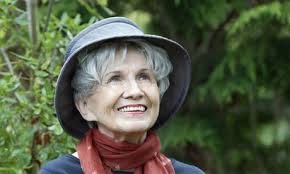The deep personal material ordtak
 |
 |
Antall ordtak er 1469560
varav 775337 på nordiska
Ordtak (1469560 st) Søk
Kategorier (2627 st) Søk
Forfattere (167535 st) Søk
Bilder (4592 st)
Født (10495 st)
Døde (3318 st)
Datoer (9517 st)
Land (5315 st)
Idiom (4439 st)
Lengde
Topplistor (6 st)
Ordspråksmusik (20 st)
Statistik
Denna sidan visar ordspråk som liknar "The deep, personal material of the latter half of your life is your children. You can write about your parents when they're gone, but your children are still going to be here, and you're going to want them to come and visit you in the nursing home.".
Linkene lenger ned har ikke blitt oversatt till norsk. Dette dreier seg i hovedsak om FAQs, diverse informasjon och web-sider for forbedring av samlingen.
Det är julafton om 253 dagar!
Vad är ordtak?
Hur funkar det?
Vanliga frågor
Om samlingen
Ordspråkshjältar
Hjälp till!
varav 775337 på nordiska
Ordtak (1469560 st) Søk
Kategorier (2627 st) Søk
Forfattere (167535 st) Søk
Bilder (4592 st)
Født (10495 st)
Døde (3318 st)
Datoer (9517 st)
Land (5315 st)
Idiom (4439 st)
Lengde
Topplistor (6 st)
Ordspråksmusik (20 st)
Statistik
Denna sidan visar ordspråk som liknar "The deep, personal material of the latter half of your life is your children. You can write about your parents when they're gone, but your children are still going to be here, and you're going to want them to come and visit you in the nursing home.".
Linkene lenger ned har ikke blitt oversatt till norsk. Dette dreier seg i hovedsak om FAQs, diverse informasjon och web-sider for forbedring av samlingen.
Det är julafton om 253 dagar!
Vad är ordtak?
Hur funkar det?
Vanliga frågor
Om samlingen
Ordspråkshjältar
Hjälp till!
 |
Linkene lenger ned har ikke blitt oversatt till norsk. Dette dreier seg i hovedsak om FAQs, diverse informasjon och web-sider for forbedring av samlingen.
Det är julafton om 253 dagar!
Vad är ordtak?
Hur funkar det?
Vanliga frågor
Om samlingen
Ordspråkshjältar
Hjälp till!
|

